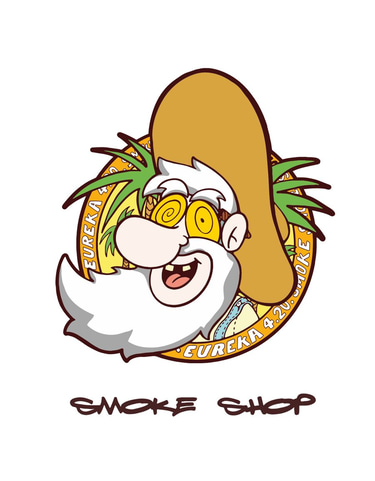Understanding the "Delta" Difference
This hits on some of the most popular and often confusing cannabinoids out there! Delta-8, Delta-9, and Delta-10 THC are indeed distinct, and understanding their similarities, differences, and ideal applications is key to making the best choice to align with your individual needs, goals and expectations. By understanding these nuances, we can confidently guide you to the Delta THC variant that best aligns with your desired experience, whether it's deep relaxation, clear-headed focus, or the classic cannabis journey. Let's break them down in detail.
6/18/20253 min read


The "Delta" in their names refers to the position of a double bond in their chemical structure. This seemingly small difference profoundly impacts how they interact with your body's endocannabinoid system, particularly the CB1 receptors in your brain, which are responsible for psychoactive effects.
1. Delta-9 THC: The Classic, Full-Spectrum Experience
Chemical Structure: The double bond is on the 9th carbon atom in its chain.
Source: This is the most abundant and naturally occurring psychoactive cannabinoid found in the cannabis plant.1 When people refer to "THC" without specifying a Delta variant, they are almost always referring to Delta-9 THC.
Extraction/Production: Extracted directly from the cannabis plant (both marijuana and hemp, though legally hemp-derived Delta-9 must contain less than 0.3% Delta-9 THC by dry weight). Common extraction methods include CO2, ethanol, and hydrocarbon extraction, followed by refinement.
Potency: Generally considered the most potent of the three in terms of psychoactive effects.
Onset/Duration: Effects typically kick in within minutes (vaping/smoking) to 30-90 minutes (edibles) and can last 2-6 hours.
Characteristic High: Produces a strong "head high" characterized by euphoria, altered perception of time and senses, increased appetite (the "munchies"), relaxation, and sometimes a "body high."
Potential Side Effects: Can include anxiety, paranoia, impaired coordination, dry mouth, red eyes, and short-term memory impairment, especially at higher doses or for new users.
Recreational Use: For those seeking the traditional cannabis "high" for enjoyment, relaxation, or altered consciousness.
Strong Therapeutic Needs: Often chosen for significant pain relief, severe nausea, appetite stimulation (e.g., for chemotherapy patients), or deep sleep aid due to its pronounced effects.
Experienced Users: Best suited for individuals familiar with cannabis and its effects, who have developed a tolerance or desire a robust experience.
2. Delta-8 THC: The Milder, Clear-Headed Alternative
Chemical Structure: The double bond is on the 8th carbon atom.
Source: Found naturally in cannabis in very low concentrations (typically less than 0.1%). Due to its scarcity, most Delta-8 THC on the market is synthesized from more abundant cannabinoids like CBD.
Extraction/Production: Hemp-derived CBD is chemically converted into Delta-8 THC through a process involving solvents and catalysts (isomerization). This process allows for scalable and cost-effective production.
Potency: Roughly 50-70% as potent as Delta-9 THC. It's often described as a "lighter" or "milder" high.
Onset/Duration: Similar onset times to Delta-9, but effects may feel less intense and potentially last a bit longer for some users.
Characteristic High: Users often report a more clear-headed, functional high with less anxiety or paranoia. It tends to be more relaxing and sedating, with a notable body high. Less intense psychoactive effects on perception and cognition.
Potential Side Effects: Generally milder than Delta-9, but can still include dry mouth, red eyes, and some impairment, especially at higher doses. The risk of anxiety is significantly lower.
Mild Recreation: For those who want a psychoactive experience but find Delta-9 too intense or anxiety-inducing.
Functional Relief: Ideal for daytime use or situations where you need to remain somewhat clear-headed. Useful for mild pain, stress reduction, or gentle relaxation without heavy sedation.
Beginners or Sensitive Individuals: An excellent entry point into psychoactive cannabinoids for those new to cannabis or who are particularly sensitive to Delta-9's effects.
3. Delta-10 THC: The Uplifting, Sativa-like Experience
Chemical Structure: The double bond is on the 10th carbon atom.
Source: Also found in extremely trace amounts in the cannabis plant. Like Delta-8, commercial Delta-10 is almost exclusively synthesized from CBD or Delta-9 THC.
Extraction/Production: Similar to Delta-8, Delta-10 is produced through the isomerization of CBD or Delta-9 THC using specific chemical reactions and catalysts.
Potency: Generally considered the least psychoactive of the three, with potency similar to or slightly less than Delta-8 THC.
Onset/Duration: Similar onset and duration to Delta-8 and Delta-9, though effects may feel less pronounced.
Characteristic High: Users often describe Delta-10 as having an "uplifting," "energizing," or "sativa-like" effect. It's less sedating than Delta-8 and may promote focus and creativity. The psychoactive effects are typically very mild, making it less impairing.
Potential Side Effects: Minimal reported side effects, usually limited to mild dry mouth or red eyes. The risk of anxiety or paranoia is very low.
Daytime Use & Focus: Excellent for those seeking a mild boost in mood, creativity, or focus without heavy sedation or strong impairment.
Social Settings: Can be a good choice for social situations where you want a light buzz without feeling overly "stoned."
Microdosing: Its mild nature makes it suitable for experimental microdosing for mood enhancement or gentle therapeutic effects.
Creatives & Productivity: Preferred by some who want to unlock creative flows or stay engaged in tasks while experiencing a subtle uplift.
Key Considerations for All Three:
Legality: The legal status of Delta-8 and Delta-10 THC can be complex and varies by country and also often by regions within a country. (e.g., federally legal in the US if derived from hemp, but many individual states have banned them). In Mexico, Cofepris governs all cannabis and cannabis-derived products. In a separate article, we will discuss how you can apply for a specific authorization for personal use of certain cannabis products in Mexico.
Lab Testing: Prioritize products that come with comprehensive third-party lab reports to verify purity, potency, and the absence of harmful contaminants.
Individual Variability: Everyone's body reacts differently to cannabinoids. Start with a low dose and go slow, especially when trying a new Delta variant.
